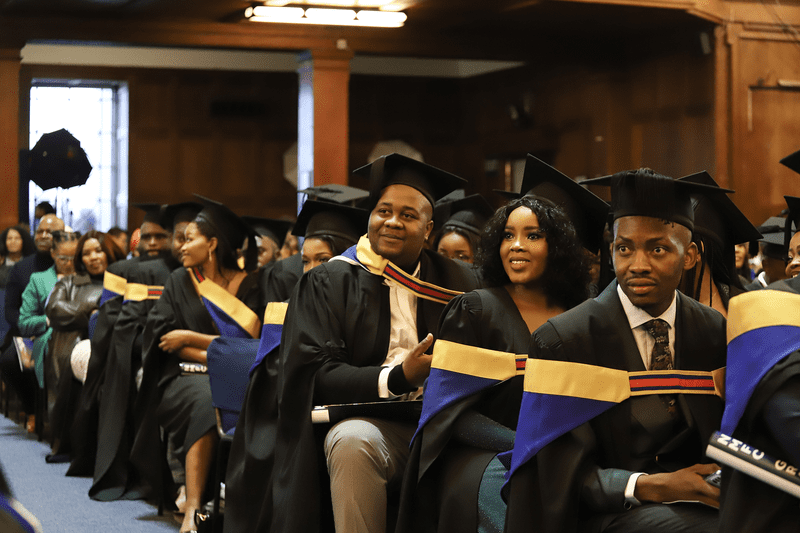[bt_section][bt_row][bt_column width=”2/3″][bt_text]
In a significant boost to South Africa’s public health sector, over 450 medical students who studied in Cuba under the Nelson Mandela/
Fidel Castro Medical Collaboration Programme have graduated and are set to serve in disadvantaged communities. However, the move has sparked controversy due to the large number of locally trained doctors still awaiting placement.

Graduation Ceremony
The Deputy Minister of Health, Dr. Sibongiseni Dhlomo, took the lead in presiding over the graduation ceremony of more than 450 South African medical students. These students completed their studies in Cuba and celebrated their graduation at the University of Cape Town. This event marked the conclusion of their educational journey through the Nelson Mandela/Fidel Castro Medical Collaboration Programme. After finishing their studies in Cuba, the students participated in an 18-month integration programme at local universities.
Placement in Disadvantaged Communities
Foster Mohale, a spokesperson for the Health Department, announced that the newly graduated medical students would be placed in various public health facilities across the country. The primary focus will be on historically disadvantaged communities and underserved areas, providing much-needed medical services to these regions.
The Impact of the SA/Cuba Relationship
In his address, Dhlomo thanked the families who had to cope with the absence of their children as they pursued their studies in Cuba. He underscored the importance of the South Africa-Cuba partnership, saying it had made a significant contribution to the medical fraternity, especially in producing medical doctors. He hailed this achievement as a “remarkable milestone” and a clear demonstration of the lasting impact of the relationship between the two countries.
Controversy Over Placements
Despite the celebratory atmosphere, critics voiced their concerns about the graduation of these new doctors. This criticism arose because a similar number of locally trained doctors still awaited placement in health facilities as of 2022. Earlier this year, the health department suggested that jobless doctors should look for employment elsewhere, even though the country faces a critical shortage of doctors. Last year, Health Minister Joe Phaahla disclosed in a parliamentary question that the country’s doctor-to-patient ratio stood at 1:3 per 198 patients and 0.31 doctors per 1,000 patients, and the number of doctors was decreasing.
Read also :
Medical training in Cuba
Cuban Medical Education Program Overview
[/bt_text][/bt_column][bt_column width=”1/3″][bt_text]
[/bt_text][/bt_column][/bt_row][/bt_section][bt_section][bt_row][bt_column width=”1/1″][bt_text]
[/bt_text][/bt_column][/bt_row][/bt_section]
 [/bt_text][/bt_column][/bt_row][/bt_section][bt_section][bt_row][bt_column width=”1/1″][bt_text]
[/bt_text][/bt_column][/bt_row][/bt_section]
[/bt_text][/bt_column][/bt_row][/bt_section][bt_section][bt_row][bt_column width=”1/1″][bt_text]
[/bt_text][/bt_column][/bt_row][/bt_section]

2 comments
Sabelo (last name withheld for privacy protection purposes)
April 15, 2024 at 4:15 pm
I am Sabelo Menzi Khawula, 17 years of age, born in KZN South Coast in place called Tin Town in Gamalakhe Township. my the first born in my family with two other siblings. i have interest in doing medicine and would like to find out, how can one apply and become the Cuban programme sponsored by the South African government .
CubaHeal Customer Care
May 7, 2024 at 3:34 pm
Dear Sabelo,
It is essential to note that CubaHeal is strictly mandated by the Cuban government to assisting self-financed students exclusively. For students who are recipients of scholarships, it is important to note that their registration must be carried and concluded by the government agency granting the scholarship and not CubaHeal.
Best regards,